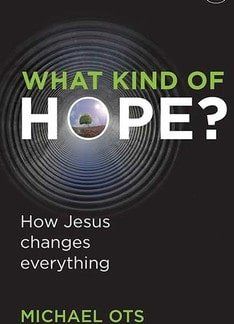What kind of hope? Michael Ots IVP, 152 pages £7.99, ISBN: 978-1-84474-604-0Star Rating : 1 It seems to me that most Christians’ understanding of the after-life is focused on the intermediate state before the return of Christ, when he will give us new bodies and we will inhabit the new, restored earth. It is therefore pleasing to see Michael Ots seeking to redress this balance in this new book. It is evangelistic in its aim and the early chapters outline the Christian hope and deal with the issue of the truth of the Bible and Christianity. There is an excellent chapter dealing with the historicity of the resurrection. Many Christians will find this section helpful in sharing the faith. There are some weaknesses that reduce the book’s usefulness. For example, in dealing with the creation he is weak on the literal meaning of Genesis 1, without seeming to realise that, to deny this, brings into question the Fall and its consequences. He is also weak on the whole nature of sin, which is mostly described simply in terms of broken relationships. In describing the Fall there is no mention at all of God’s anger against sin, nor his judgement of the whole creation because of it. The results of the Fall just seem to happen. Sin as rebellion against God is hinted at, but never really explained. For example, and this quote is typical, ‘Sin is the destructive stuff that wrecks our lives and relationships’ (p.69). The guilt of sin is never mentioned and although repentance is briefly covered, it is not really explained as the Bible explains it. He does speak of Jesus being punished in the place of sinners, but even in this he majors on a broken relationship with God rather than his being a sin-bearer in the fullest sense. I was uncomfortable about the suggestion of a prayer to pray, but even more astonished to read this immediately after the prayer: ‘If you have responded to the invitation, then let me say “Congratulations!”’ (p.120). Should we congratulate someone for turning to Christ, as though it were a personal achievement rather than the result of the free grace of God? His efforts to deal with the new heavens and the new earth are laudable, if rather speculative. Sadly, the immediate presence of the Lord in the after-life is not really mentioned. Surely, according to the Scriptures, it is this which is the greatest thing about heaven. It is worth reading for helpful ideas, but read with caution as it seems to be quite light on those parts of the gospel that would be most offensive to modern man.Geoff CoxBirmingham
Join the discussion
Read community guidelines
ADVERTISE




